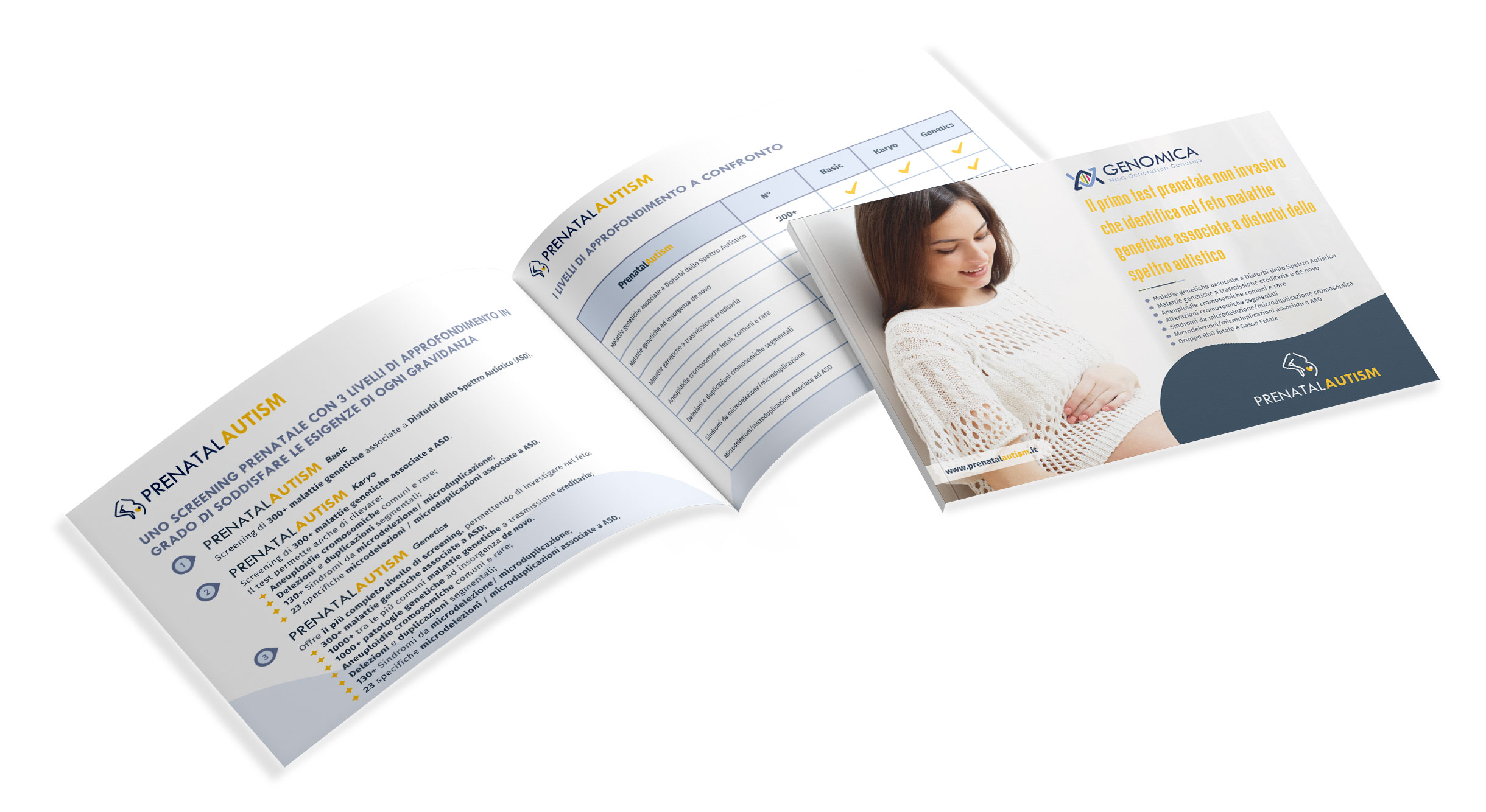AUTISM SPECTRUM DISORDERS
Autism Spectrum Disorders (ASD) represent a heterogeneous group of neurodevelopmental conditions
characterized by altered maturation and connectivity of brain networks.
From a clinical perspective, ASD is typically characterized by:
- Persistent impairment in communication and social interaction, which may manifest as difficulties in verbal and non-verbal language, understanding others’ emotions, and social reciprocity.
- The presence of restricted, repetitive, and stereotyped behaviors and interests, which may include rituals, insistence on sameness, repetitive movements, or an intense focus on specific objects or topics.
Comorbidità frequenti:
- Intellectual disability (≈30–40% of cases);
- Language disorders;;
- Epilepsy (affecting up to 20–30% of individuals);
- Sleep and behavioral disorders.
INCIDENCE OF CONDITIONS ASSOCIATED WITH AUTISM SPECTRUM DISORDERS
The prevalence of ASD has increased over the past decades, partly due to the broadening of diagnostic criteria and greater clinical and social awareness. It is estimated that more than1 in 100 children are affected by an autism spectrum disorder. In Italy, according to data from the Istituto Superiore di Sanità, approximately 1 in 77 children aged 7 to 9 receive an ASD diagnosis, with a markedly higher prevalence in males, who are about 4.4 times more likely to be affected compared to females¹.
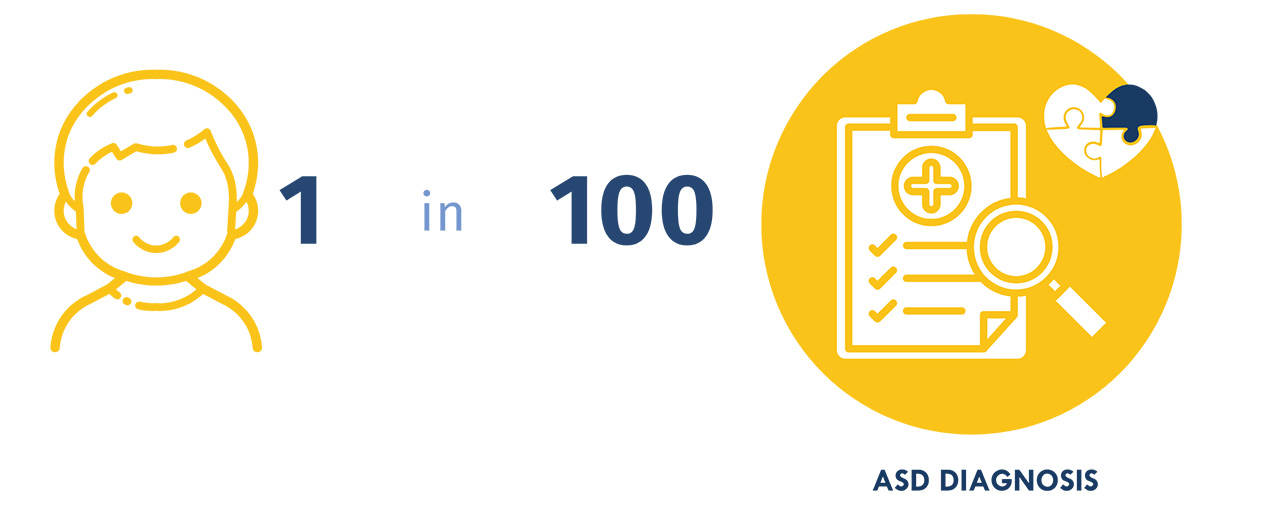
1. Istituto Superiore di Sanità. Disturbi dello spettro autistico nei bambini e negli adolescenti. Linea guida 2023.
GENETIC BASIS OF AUTISM SPECTRUM DISORDERS
Scientific evidence indicates that genetic factors play a predominant role in the development of autism, accounting for approximately 70–90% of cases.²⁻³
Genetic abnormalities may include:
- Point mutations or pathogenic variants in key genes involved in neuronal development, synaptogenesis, and synaptic transmission (e.g., CHD8, SCN2A, SHANK3, SYNGAP1). ⁴⁻⁵
- Copy Number Variants (CNVs), i.e., microdeletions or microduplications of chromosomal regions, such as those located on 16p11.2 or 15q13.3.
- Genetic syndromes associated with autism,, including tuberous sclerosis, Rett syndrome, and Phelan- McDermid syndrome, which account for a significant proportion of syndromic ASD cases.⁶⁻⁷
2. Tick B et al. Heritability of autism spectrum disorders: a meta-analysis of twin studies. JAMA Psychiatry. 2016;73(3): 258-268.
3. Sandin S et al. The familial risk of autism. JAMA. 2014;311(17):1770-1777.
4. Satterstrom FK et al. Large-Scale Exome Sequencing Study Implicates Both Developmental and Functional Changes in the Neurobiology of Autism. Cell. 2020;180(3):568-584.e23.
5. Iossifov I et al. The contribution of de novo coding mutations to autism spectrum disorder. Nature. 2014;515:216-221.
6. Rolland T, et al. Phenotypic effects of genetic variants associated with autism Nat Med. 2023 Jul;29(7):1671-1680.
7. Grove J et al. Identification of common genetic risk variants for autism spectrum disorder. Nat Genet. 2019;51:431-444.

PRENATALAUTISM is an advanced non-invasive prenatal screening test that analyzes circulating cell-free fetal DNA (cfDNA) from a maternal blood sample to identify fetal mutations responsible for severe genetic diseases associated with Autism Spectrum Disorders. This stateof- the-art approach offers superior accuracy and detection capabilities compared to conventional NIPTs.
The quantity of this DNA, also named circulating cell-free fetal DNA,increases as the pregnancy progresses, reaching levels sufficient for reliable analysis by the 10th week, providing valuable insights into the fetus's health.
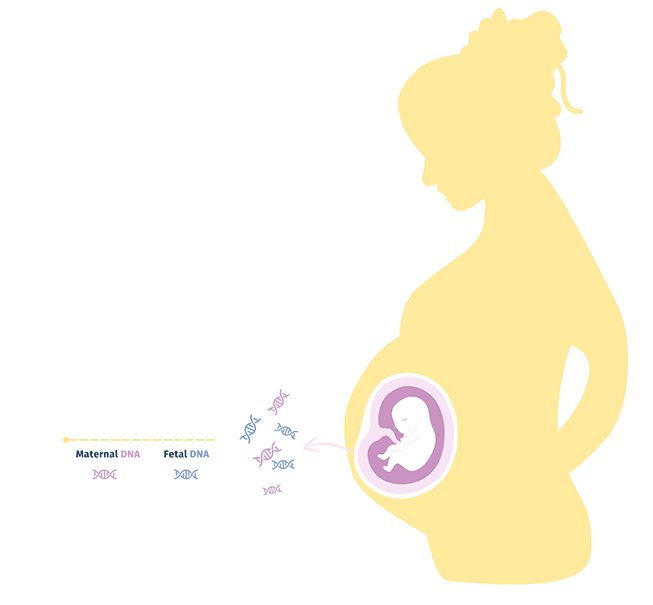
PRENATALAUTISM is an advanced non-invasive prenatal screening test that analyzes circulating cell-free fetal DNA (cfDNA) from a maternal blood sample to identify fetal mutations responsible for severe genetic diseases associated with Autism Spectrum Disorders. This stateof- the-art approach offers superior accuracy and detection capabilities compared to conventional NIPTs.

The quantity of this DNA, also named circulating cell-free fetal DNA,increases as the pregnancy progresses, reaching levels sufficient for reliable analysis by the 10th week, providing valuable insights into the fetus's health.
3 LEVELS OF SCREENING DESIGNED TO MEET THE NEEDS OF EVERY PREGNANCY


Screening for 300+ genetic diseases associated with Autism Spectrum Disorders (ASD).

Screening for 300+ genetic diseases associated with ASD.
The test also allows the detection of:
- Common and rarechromosomal aneuploidies;
- Segmental deletions and duplications;
- 130+ microdeletion/microduplication syndromes;
- 23 specific microdeletions/microduplications associated with ASD.

Provides the most comprehensive level of screening, enabling the investigation of the fetus for:
- 300+ genetic diseases associated with ASD;
- 1000+ of the most common inherited genetic disorders;
- 1000+ de novo genetic conditions
- Common and rare chromosomal aneuploidies;
- Segmental deletions and duplications;
- 130+ microdeletion/microduplication syndromes;
- 23 specific microdeletions/microduplications associated with ASD.
COMPARING THE SCREENING OPTIONS

| PrenatalAutism | N° | Basic | Karyo | Genetics |
|---|---|---|---|---|
| Genetic diseases associated with ASD | 300+ | |||
| De novo genetic conditions | 1000+ | |||
| Common inherited genetic disorders | 1000+ | |||
| Common and rare chromosomal aneuploidies | 24 cromosomes | |||
| Segmental deletions and duplications | > 7Mb | |||
| Microdeletion/microduplication syndromes | 130+ | |||
| Specific microdeletions/microduplications associated with ASD | 23 |
DETAILED OVERVIEW OF TEST FINDINGS

- 1000+ INHERITED GENETIC DISORDERS
- 1000+ DE NOVO GENETIC CONDITIONS
- 300+ GENETIC DISEASES ASSOCIATED WITH ASD
-
24
FETAL KARYOTYPE SCREENING
Screening for common and rare fetal aneuploidies, segmental deletions and duplications§ across the whole fetal genome, providing karyotypelevel insight
§ <7 Mb -
>130
MICRODELETION/MICRODUPLICATION SYNDROMES
As low as 1 Mb -
23
SPECIFIC MICRODELETIONS/MICRODUPLICATIONS
Associated with Autism Spectrum Disorders
A GROUNDBREAKING TECHNOLOGY FOR REVOLUTIONARY SCREENING
The advanced high-resolution fetal genome sequencing technology⁸⁻⁹, combined with sophisticated
bioinformatic analysis using a proprietary algorithm, enables the study of the fetal karyotype and the
screening of hundreds of severe genetic disorders in the fetus, including those associated with Autism
Spectrum Disorders, inherited conditions, and de novo diseases, in a single analysis. This level of detail was
previously achievable only through invasive prenatal diagnostic methods
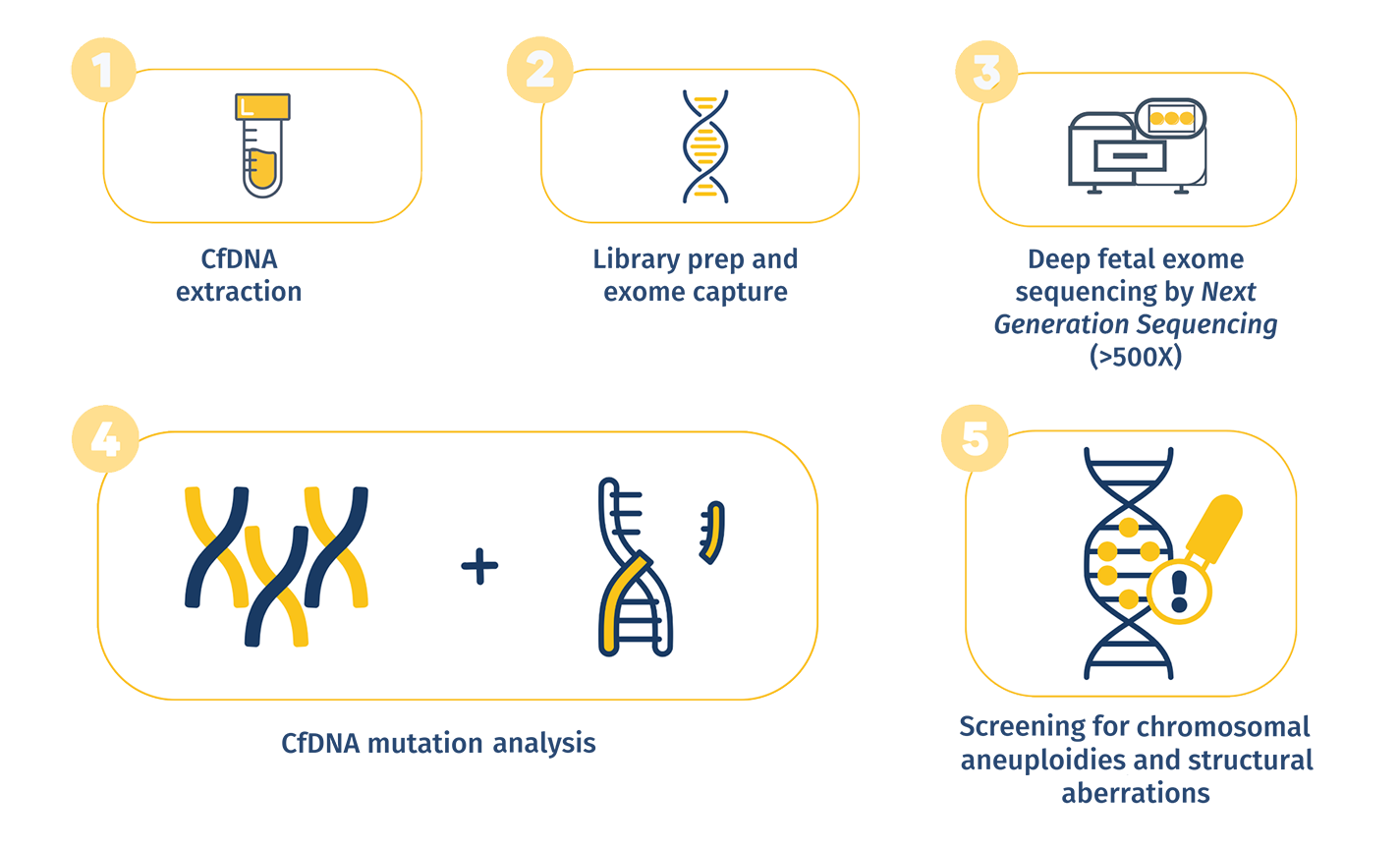


The high resolution of the test allows for a low limit of detection (LOD).
Highly accurate at 1%
of Fetal Fraction

The high resolution of the test allows for a low limit of detection (LOD).
Highly accurate at1% of Fetal Fraction
8. Brand H, Whelan CW, Duyzend M, et al. High-resolution and noninvasive fetal exome screening. N Engl J Med. 2023;389:2014-2016.
9. Miceikaitė I, Hao Q, Brasch-Andersen C, et al. Comprehensive Noninvasive Fetal Screening by Deep Trio-Exome Sequencing. N Engl J Med. 2023;389:2017-2019.
THE TEST REPORT

The test result may be negative, indicating a low risk for a chromosomal abnormality or a genetic disease in the fetus. In such cases, the pregnancy may proceed without any need for follow-up.

In some cases, the test result may be positive, indicating a higher risk for a chromosomal abnormality or a genetic disease in the fetus. Such instances require follow-up with invasive prenatal diagnostic techniques (amniocentesis or chorionic villus sampling) to confirm the findings.
Follow-Up for Positive Results
Amniocentesis or chorionic villus sampling to confirm the detected chromosomal anomaly or genetic disease.
Complimentary services
- Refund in cases of entirely inconclusive test results
- Free Pre- and Post-test genetic counseling

A TEST THAT MEETS THE HIGHEST QUALITY STANDARDS

SIMPLE
A simple blood sample collected at 10^ weeks of gestation is required
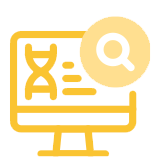
SENSITIVE
Low limit of detection: highly accurate at low cfDNA quantity (FF:1%)

ADVANCED
Groundbreaking technologies and advanced bioinformatic analysis

RELIABLE
Sensitivity and specificity <99%
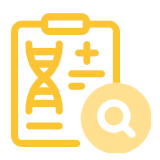
COMPLETE
Detection of both genome-wide chromosomal abnormalities and single gene disorders, providing the most comprehensive information available from a non-invasive prenatal test to date

VALIDATED
Pre-clinical validation studies performed on a wide cohort of pregnant women
INDICATION FOR TESTING

- Pregnant women under and over 35 years of age
- Contraindication to invasive prenatal diagnosis (amniocentesis, chorionic villus sampling)
- Singleton and twin pregnancies, whether conceived naturally or through autologous or heterologous assisted reproductive technologies
- Pregnancies with abnormal ultrasound findings
- Pregnant women wishing to reduce the risk of fetal genetic diseases associated with ASD
- Family history of chromosomal aneuploidy or genetic disease
- Couples in which the male partner is of advanced paternal age, a condition associated with an increased risk of de novo mutations
- Patients with a known risk of transmitting to the fetus a genetic disease detectable by the test
PRENATALAUTISM represents the ideal solution to provide in-depth and personalized information, tailored to the needs of each couple.
HOW TO PERFORM THE TEST


SAMPLES REQUIRED

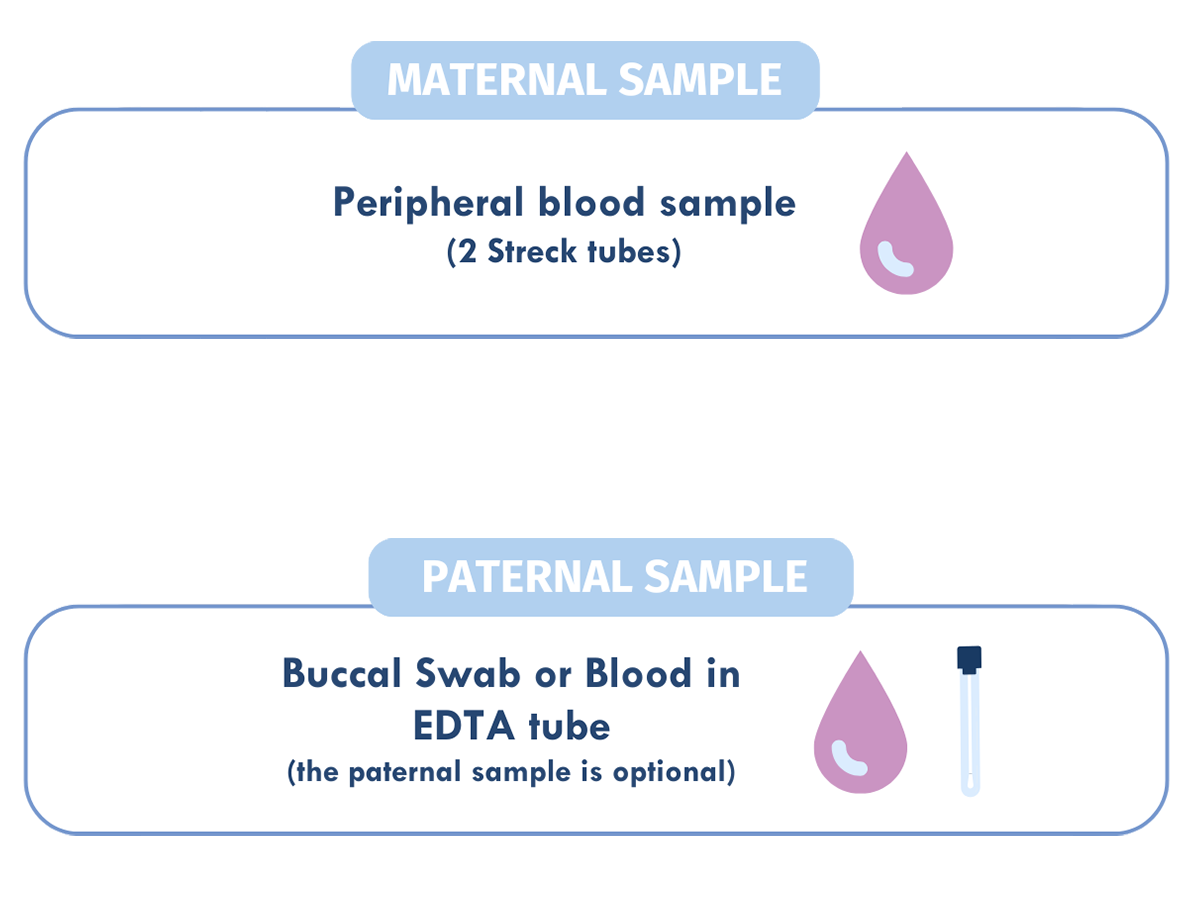
TURNAROUND TIME

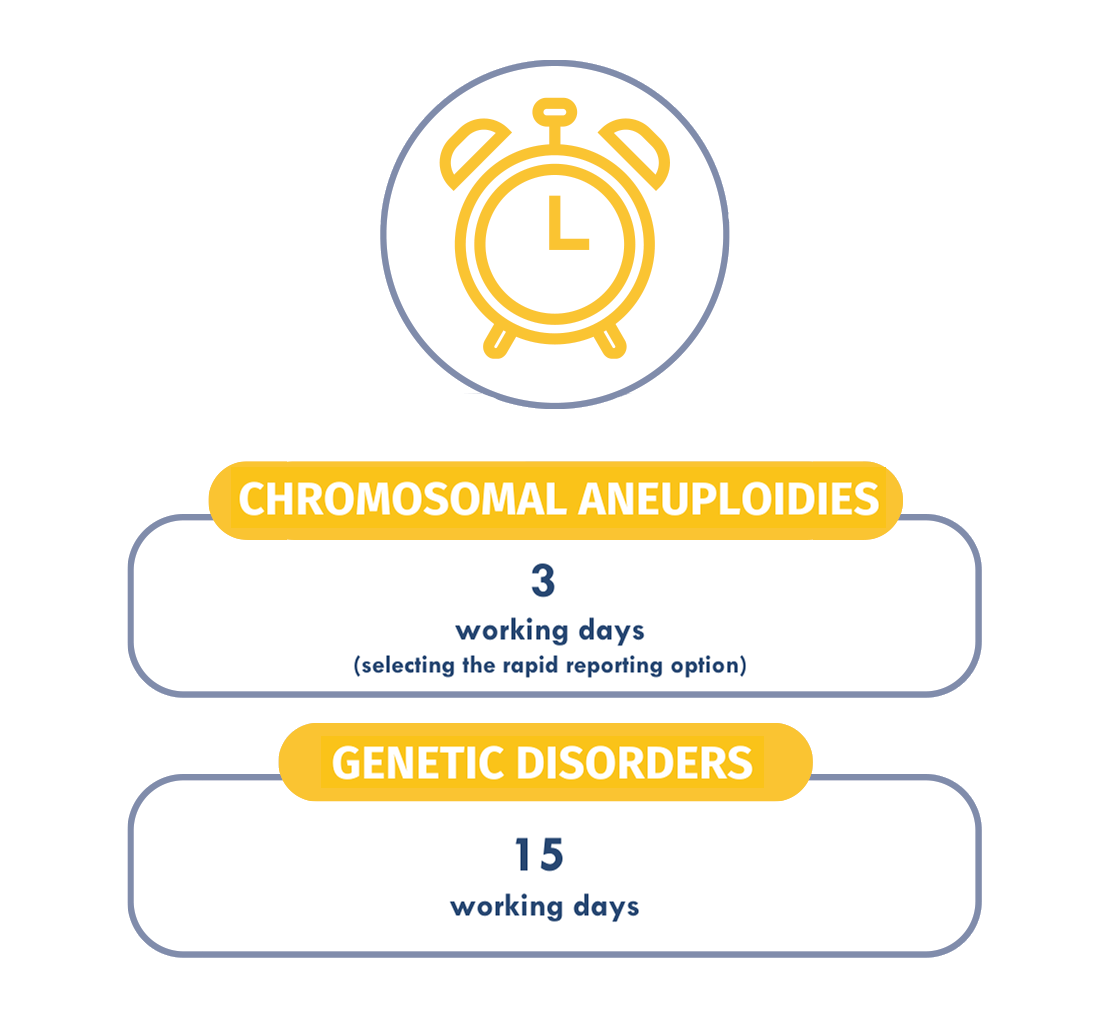
WHY CHOOSE GENOMICA

LEADING DIAGNOSTIC LABORATORY AND RESEARCH CENTER OF EXCELLENCE SPECIALIZING IN GENETICS AND MOLECULAR DIAGNOSTICS

GENOMICA is a highly innovative company with extensive technical and scientific expertise, active in both clinical applications and research. Supported by a team with over 20 years of experience in molecular diagnostics, GENOMICA combines cutting-edge technology with a strong commitment to innovation, delivering increasingly accurate and accessible diagnostic services.

Over 100.000 genetic
tests/year

Laboratories with groundbreaking technologies and high quality standards

Dedicated
R&D Team

International
Partnerships

Personalized genetic counseling with genetic counselors experts in discussing genetic test results and familial risks

20+ years experience
in prenatal molecular diagnostics
WHY CHOOSE GENOMICA

LEADING DIAGNOSTIC LABORATORY AND RESEARCH CENTER OF EXCELLENCE SPECIALIZING IN GENETICS AND MOLECULAR DIAGNOSTICS

GENOMICAis a highly innovative company with extensive technical and scientific expertise, active in both clinical applications and research. Supported by a team with over 20 years of experience in molecular diagnostics, GENOMICA combines cutting-edge technology with a strong commitment to innovation, delivering increasingly accurate and accessible diagnostic services.

Over 100.000 genetic
tests/year

Laboratories with groundbreaking technologies and high quality standards

Dedicated
R&D Team

International
Partnerships

Personalized genetic counseling
with genetic counselors experts in discussing genetic test results and familial risks

20+ years experience
in prenatal molecular diagnostics
Information request for PrenatalAutism test

Fill out this form for a free consultation.
One of our professionals will contact you, free of charge and without obligation, to provide you with all the information you need


 Italiano
Italiano English
English

